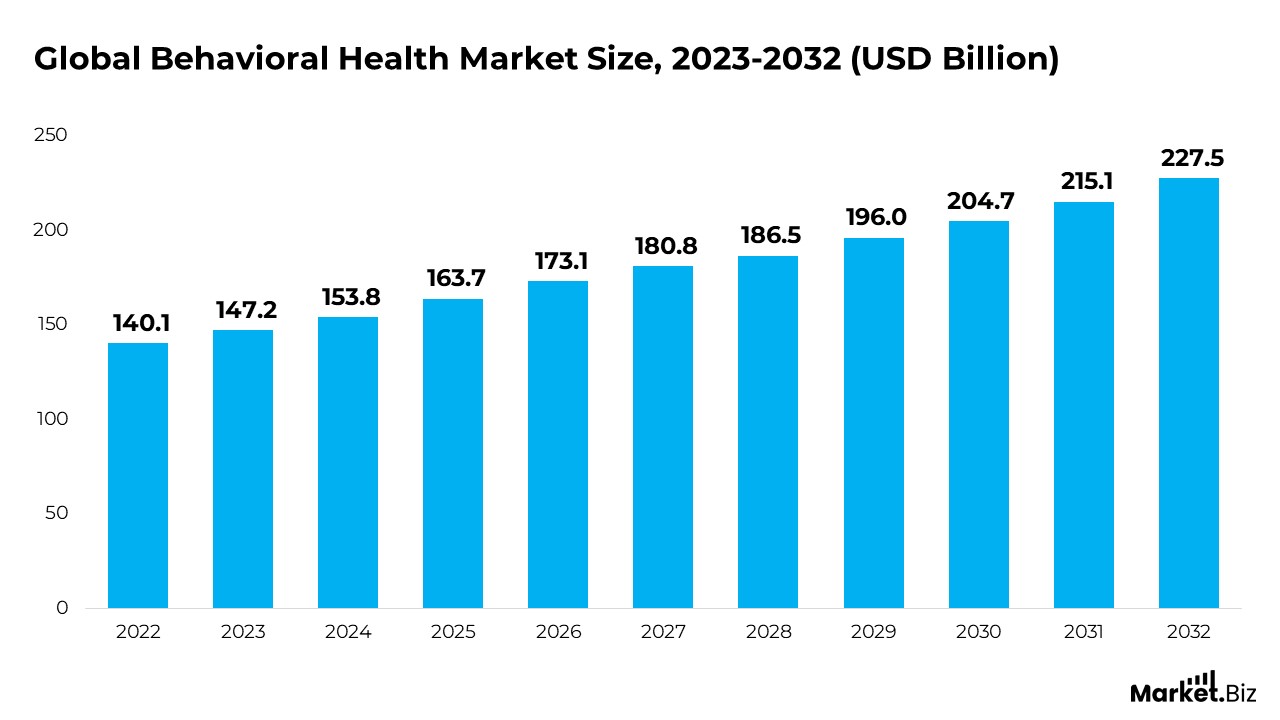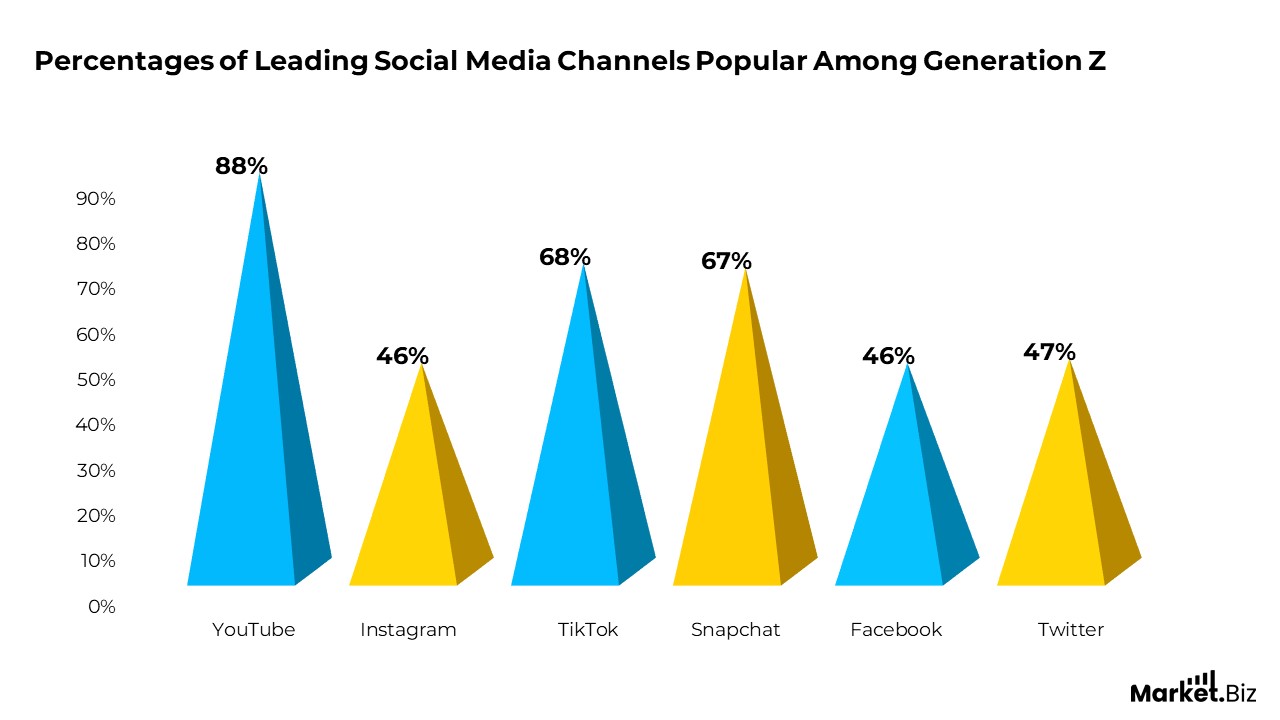Introduction
Gen Z Statistics: Generation Z, typically encompassing individuals born from the late 1990s to the early 2010s, is rapidly becoming a defining influence across culture, business, and innovation. Having grown up in an era dominated by smartphones, social media platforms, and instant connectivity, this generation is distinguished by its strong digital literacy, self-awareness, and commitment to social and environmental causes.
Gen Z values authenticity, diversity, and forward-thinking ideas, shaping how they interact with brands, content, and communities. As they transition into adulthood and professional life, it becomes increasingly important for institutions and businesses to understand their evolving mindset and behavior. This summary examines the distinctive characteristics and evolving trends that define Generation Z as a powerful and unique group, driving changes in purchasing habits, cultural values, and online interactions like never before.
Editor’s Choice
- Nearly 75% of Gen Z actively monitor their screen usage, reflecting a growing consciousness around digital wellness and time management in their daily routines.
- In the United Kingdom, Gen Z adults typically report annual earnings between £20,000 and £29,000, showcasing their emerging presence in the workforce and positioning within early-stage career paths.
- As of 2023, the Gen Z population in the UK stood at approximately 13.2 million, encompassing individuals aged 11 to 26. Among them, those aged 26 represented the largest subgroup at 887,804, while 17-year-olds formed the smallest group with 788,039 individuals.
- Across the Atlantic, the United States is home to around 69.31 million Gen Z members, making them a dominant generational force in shaping media consumption, pop culture, and purchasing behavior.
- Roughly 67% of Gen Z prefers watching personal content like ‘storytime’ videos, indicating a strong inclination toward authentic and emotionally engaging narratives from content creators.
- On job platforms, about one-third of all users are Gen Z, with LinkedIn data showing that 33.86% fall between 18–28 years, and Indeed reporting a comparable figure of 35.92%.
- Nearly 59% of Gen Z believe artificial intelligence could lead to job displacement, signaling growing anxiety about the future of employment in an AI-driven world.
- Around 71% of Gen Z consumers express interest in exploring new brands, highlighting their willingness to try fresh products and experiences that align with their values and lifestyles.
- An estimated 55% of Gen Z are more likely to connect with brands endorsed by influencers they follow, demonstrating the generation’s trust in social media personalities for product discovery.
- Lastly, 70% of Gen Z favor companies they perceive as ethical, reinforcing how environmental responsibility, inclusivity, and social integrity drive their brand loyalty..
(Source: McKinsey & Company, Investopedia, Deloitte)
Global Behavioral Health Market Size

- As per Market.us, the global market for behavioral health is anticipated to expand from $163.7 billion in 2025 to $227.5 billion by 2032, reflecting a compound annual growth rate (CAGR) of 5.1% from 2022 to 2032.
- The mental healthcare market is expanding significantly, fueled by growing awareness of mental health issues, increased government support, a rising elderly population, and substantial investments in healthcare infrastructure development.
- Depression and anxiety disorders represent the most widespread mental health challenges globally, driven by factors such as relationship strains, workplace stress, socioeconomic challenges, academic pressures, and escalating living costs, leading more individuals to seek professional mental health treatment.
- Outpatient counseling services have gained considerable popularity due to their ability to provide tailored care that meets individual patient needs, offering the convenience of treatment without requiring hospital or clinic stays.
- North America leads the global market in terms of r
- Revenue is largely due to heightened demand for behavioral health services propelled by the increasing incidence of anxiety and depression across the region.
(Source: Market.us)
General Generation Z Statistics
- Gen Z represents nearly a third of the world’s population, accounting for about 68.6 million individuals in the United States alone, positioning them as a key demographic in consumer markets.
- An overwhelming 98% of Gen Z members own smartphones, dedicating more than four hours daily to engaging with popular social platforms such as Instagram, TikTok, and YouTube.
- Approximately 67% of this generation rely heavily on online reviews when purchasing, favouring authentic, user-generated content over traditional advertising.
- Augmented reality (AR) and virtual reality (VR) are on the rise among Gen Z, with 60% actively experimenting with immersive technologies like virtual try-on experiences.
- Trust in micro-influencers is notably high, as 73% of Gen Z find these smaller-scale content creators to be more genuine and relatable than mainstream celebrities.
- Short-form video content has become the preferred medium for 57% of Gen Z, serving as a source for entertainment and product discovery.
- Gen Z’s economic influence is expanding rapidly, with their global spending power expected to surge to US$12 trillion by 2030, significantly impacting market dynamics worldwide.
- Social media plays a central role in their shopping habits, with 97% leveraging these platforms to find inspiration and make purchases.
- Reflecting their environmental consciousness, 61% of Gen Z consumers explore secondhand marketplaces before opting for new products, highlighting a shift toward sustainable consumption.
(Source: Market.us)
Demographics of Gen Z
Age:
- Generation Z typically includes individuals born between the mid-1990s and the early 2010s.
- The commonly accepted birth years for Gen Z span from 1997 through 2012.
- As of 2023, members of Generation Z are roughly between 11 and 26 years old.
- Although age ranges vary slightly by location and source, most Gen Zers fall within the 15 to 24-year-old bracket.
- Globally, Generation Z is estimated to number about 2 billion people.
- The Generation Z population in the United States alone was approximately 67 million in 2021.
- This generation constitutes a significant demographic segment, roughly 25% to 30% of the population in many countries worldwide.
Race:
- Just over half of Generation Z, around 52%, identify as non-Hispanic white.
- Hispanics represent about one-quarter, accounting for roughly 25% of this generation.
- Black individuals comprise approximately 14% of Generation Z.
- Asians comprise close to 6% of the population within this age group.
- The remaining 5% identify as belonging to other racial groups or as multiracial, reflecting a growing trend of mixed heritage.
(Source: Pew Research Center, Market.us)
Key Gen Z Employment Insights
Generation Z continues to reshape the workforce and digital landscape with distinct priorities, behaviors, and challenges. Understanding these key statistics is crucial for employers, marketers, and policymakers aiming to engage effectively with this influential generation in 2025 and beyond.
- 77% of Gen Z strongly emphasize maintaining a healthy work-life balance, reflecting their desire for harmony between professional and personal life.
- Representing nearly one-third of the global population, Gen Z is projected to make up approximately 27% of the staff by 2025, highlighting its growing economic influence.
- Flexibility in the workplace remains a critical factor, with 72% of Gen Z having moreover left or contemplated exiting a job due to insufficient flexible work arrangements.
- Compensation is a top motivator, as 70% of Gen Z prioritize salary when evaluating new job opportunities.
- Digital natives through and through, over half of Gen Z spend four or more hours daily on social media platforms, underscoring their deep digital engagement.
- YouTube dominates as a preferred platform, capturing the attention of 88% of Gen Z users.
- Instagram remains a key social hub, with 76% of Gen Z vigorously using the platform to connect and consume content.
- Other popular platforms include TikTok (68%) and Snapchat (67%), illustrating the generation’s affinity for short-form and visual media.
- Facebook and Twitter still retain nearly half of Gen Z’s attention, with 49% and 47% usage rates, respectively.
- Gender differences shape platform preferences, where male Gen Zers favor YouTube, Discord, Twitter, Twitch, and Reddit, while female Gen Zers engage more on Instagram, Facebook, Snapchat, and TikTok.
- Mental health concerns are prevalent, with 61% reporting feelings of anxiety or nervousness in recent weeks, reflecting growing emotional challenges within the cohort.
- Less than half of Gen Z describe their mental health as very good, highlighting the need for greater mental wellness support.
- Homeownership expectations are shifting, as only 41% of Gen Zers anticipate owning a home.
- Nearly all Gen Z people (98%) own smartphones, emphasizing their constant connectivity.
- Most (73%) frequently watch video content on mobile devices, reinforcing the importance of mobile-first content strategies.
(Source: McKinsey, The Forage, Morning Consult)
Leading Social Media Channels Popular Among Generation Z

(Source: Morning Consult Pro)
Smartphone Ownership Trends in Generation Z
- Nearly 97% of Generation Z individuals aged 13 to 24 own a smartphone.
- Among these users, 84% regard their smartphone as their most essential device.
- Apple’s iPhone and Samsung are the leading smartphone brands favored by Gen Z.
- Notably, around 85% of Gen Z smartphone owners prefer Apple iPhones.
- On average, this generation spends approximately 4.5 hours daily on their smartphones.
- Their top smartphone activities include engaging with social media, messaging friends, streaming music and videos, playing games, and using educational apps.
- Smartphones are vital for product research, with about 65% of Gen Z users investigating products via their devices before buying.
- Furthermore, mobile apps and social media platforms impact the purchasing choices of nearly 55% of Gen Z smartphone users.
(Source: Piper Sandler, GlobalWebIndex, Pew Research Center)
Online Activity Trends Among Gen Z
- Nearly 98% of Gen Z individuals aged 13 to 24 are active on at least one social media platform.
- Instagram is the top platform for younger Gen Z users, with approximately 76% of those aged 13 to 17 engaging on the app.
- Snapchat maintains strong popularity, attracting about 73% of Gen Z users within the 13 to 24 age range.
- TikTok has rapidly expanded among older Gen Z members, with around 68% of those aged 18 to 24 using the platform regularly.
- YouTube remains a dominant video source, reaching 95% of Gen Z users between ages 13 and 24.
- On average, Gen Z spends nearly 3 hours daily watching videos online.
- Short-form video formats like TikTok and Instagram Reels capture the attention of about 60% of this generation.
- Gaming is a widespread pastime, with roughly 87% of Gen Z individuals regularly participating in online games.
- Popular multiplayer titles such as Fortnite, Call of Duty, and League of Legends resonate strongly with this group.
- Esports competitions and streaming services like Twitch have grown notably in popularity among Gen Z audiences.
- Content creation is also significant, with approximately 58% of Gen Z users producing and sharing their videos online.
- Platforms, including YouTube, TikTok, and Instagram, offer vital outlets for Gen Z to express creativity and build followings.
(Source: Pew Research Center, Nielsen, Entertainment Software Association, GlobalWebIndex Think with Google)
Shopping Habits Trends in Gen Z
Digital research, social connections, and values-driven brand interactions influence Generation Z’s purchasing behavior. Their shopping preferences blend online convenience with a desire for authentic experiences and personalized options:
- About 81% of Gen Z shoppers conduct thorough online research before buying.
- Reading product reviews is common, with 85% consulting feedback before purchase.
- Trusted opinions matter most, as 62% prefer reviews from familiar or reliable sources.
- Smartphones are a key shopping tool that 70% of Gen Z consumers use.
- Mobile-only checkout processes are embraced by 62% who feel comfortable completing purchases solely via their phones.
- Over half (51%) purchase products directly through social media platforms.
- Despite digital trends, 72% still favor shopping in physical retail stores.
- A strong majority, 80%, prefer to physically see, touch, or try products before buying.
- Nearly half (47%) are more inclined to purchase when offered the ability to personalize items in-store.
- Recommendations from social media influencers drive buying behavior for 66% of Gen Z shoppers.
- About 63% follow influencers to discover new products and trends.
- Trust in influencers surpasses that for traditional celebrities, with 59% placing greater confidence in influencer endorsements.
- Discounts and promotional offers impact the purchasing choices of 67% of Gen Z consumers.
- Social responsibility matters, as 60% are more likely to support brands aligned with causes important to them.
- Half of Generation Z (50%) feel it is essential for brands to take clear stances on social issues.
(Source: IBM, Morning Consult, Forbes)
Lifestyle and Health Trends Among Generation Z
Mental Health
- Approximately one-third of Generation Z individuals have received a formal diagnosis of an anxiety disorder.
- A substantial 71% report experiencing symptoms related to stress or anxiety.
- Over one-third (37%) have encountered signs of depression at some point.
(Source: American Psychological Association)
Patterns of Substance Use
- In the past month, 31% of Gen Z have consumed alcohol.
- Marijuana use within the past month is reported by 20% of this group.
- Misuse of prescription medications in the last year has been reported by 7%.
(Source: Exploding Topics)
Physical Health and Activity
- Three-quarters of Gen Z engage consistently in exercise or other forms of physical activity.
- Nearly a quarter (24%) rate their physical health as fair or poor.
- One in five Gen Zers live with a chronic health condition.
(Source: McKinsey)
Key Spending Areas Among Generation Z
Generation Z demonstrates distinctive spending habits that reveal both their passion for pets and entertainment and the strong influence of social media and evolving shopping preferences.
- In 2022, Gen Z allocated an average of $1,885 annually toward pet-related expenses, outspending all other generations surveyed.
- Monthly entertainment spending by Gen Z averages around $157, covering streaming platforms, music subscriptions, and gaming activities.
- Social media is a powerful driver for purchasing decisions, prompting 49% of Gen Z consumers to buy more clothing, with similar influence in beauty products (34%) and technology (31%).
- Among female Gen Z shoppers, 40% report buying clothing as frequently as twice per month.
- Although many Gen Z consumers appreciate in-store shopping, over half (51.5%) primarily purchase clothing and electronics online, underscoring the importance of a diversified retail presence.
(Source: Statista, SurveyMonkey, self.inc, AAHA, EcoCart)
Recent Developments
Market Research and Consumer Insights:
- Industry analysts and research organizations have conducted extensive studies to decode Generation Z’s demographics, preferences, and behavioral patterns across multiple sectors, offering valuable guidance for businesses and marketers.
Commitment to Sustainability and Ethics:
- Environmental consciousness and ethical consumption are priorities for Gen Z, fueling demand for green products, transparent sourcing, and brands that authentically reflect their social values. In response, companies are rolling out eco-friendly lines, sustainability initiatives, and transparent corporate responsibility communications.
Digital Natives and Social Media Evolution:
- Gen Z continues to redefine digital engagement with a clear preference for visually rich content, brief video formats, and interactive storytelling.
- Brands increasingly leverage influencer marketing on TikTok, Instagram, and Snapchat platforms to connect with this audience and boost brand visibility.
E-commerce and Buying Patterns:
- There is a notable shift among Gen Z toward online shopping, favoring mobile-optimized e-commerce sites and smooth, convenient checkout processes. Direct-to-consumer brands resonate well due to their authentic narratives, sustainability efforts, and tailored product experiences.
Social and Political Engagement:
- Generation Z actively participates in social and political causes, championing climate action, racial equality, LGBTQ+ rights, and gun reform. Social media is a powerful tool for advocacy, community organizing, and driving societal change.
Rise of Entrepreneurship and Gig Work:
- A growing number of Gen Zers are embracing entrepreneurship and side ventures, launching small businesses, freelancing, and creative projects alongside traditional jobs. Digital platforms facilitate monetizing talents in content creation, graphic design, and online retail.
Education and Career Aspirations:
- Prioritizing continuous learning and career growth, Gen Z seeks flexible educational programs, mentorship, and skill development opportunities. Their affinity for remote work and gig roles aligns with a desire for autonomy, balance, and adaptable career paths.
Conclusion
Generation Z is a remarkably diverse, tech-savvy, and socially aware generation transforming consumer habits, cultural trends, and the business landscape. Their emphasis on genuine authenticity, environmental responsibility, tailored experiences, and extensive use of digital channels shapes their distinct identity and buying behavior.
Gaining a deep understanding of Gen Z’s demographics, lifestyle preferences, and core values is crucial for companies and decision-makers seeking to engage meaningfully with this powerful generation as they continue to influence and redefine markets and society worldwide.
FAQ’s
Generation Z favors platforms like Instagram, Snapchat, TikTok, and YouTube. They especially enjoy engaging with short-form videos and interactive content on these channels.
Gen Z allocates significant portions of their budget to pet care, entertainment, fashion, beauty products, and technology. Their purchasing decisions are often shaped by social media influence and online reviews.
This generation experiences notable mental health challenges, including anxiety and stress, yet many maintain an active lifestyle through regular exercise. Substance use presents varying levels of concern within different segments of Gen Z.
Key factors like sustainability, genuine authenticity, social responsibility, and alignment with personal beliefs are crucial in how Gen Z selects brands and products.
Gen Z strongly participates in activism focused on environmental protection, racial equality, LGBTQ+ rights, and more, frequently leveraging social media platforms to organize and spread awareness.
Grasping Gen Z’s distinctive demographics, behaviors, and preferences enables businesses to develop targeted marketing, innovative products, and meaningful engagement strategies tailored to this influential consumer group.
